On the #KPAC20 talked about people-centered justice in the fight against COVID-19
Publication date: November 3, 2020
Authors: Maaike de Langen, Program Lead, Justice for All, Pathfinders for Peaceful, Just and Inclusive Societies, NYU-CIC and Yevgen Poltenko, Executive Director of LDN
At the #KPAC20, one session held an exciting discussion on human-centered justice during the COVID-19 fight and recovery.
KPAC20 is an annual conference. The conference is hosted by the Knowledge Platform Security & Rule of Law.
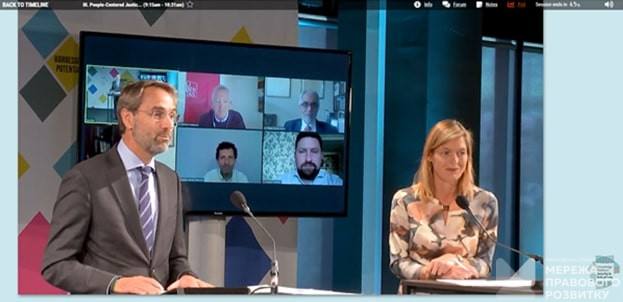
The Knowledge Platform Security & Rule of Law is a vibrant network of experts working on generating, sharing, interrogating and applying evidence in the field of security & rule of law.
The Platform’s main objective is to improve the learning capacity and knowledge base of its members, specifically decision makers for Security & Rule of Law (SRoL) policy and programs.
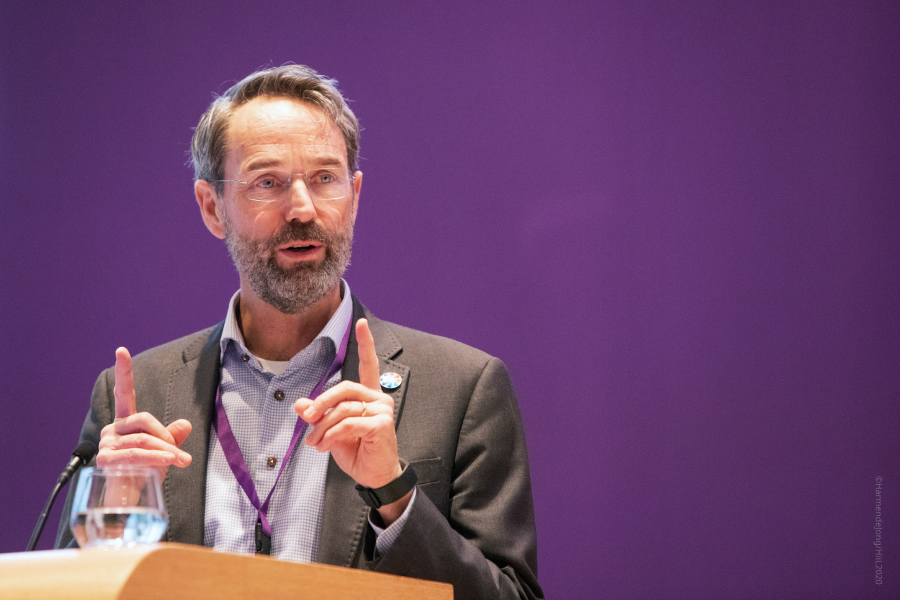
Discussion moderator Sam Muller, Founding Director, The Hague Institute for Innovation of Law (HiiL), asked our participants from Argentina, Ukraine and Bangladesh, “How did you work to improve justice outcomes for people during the pandemic?”
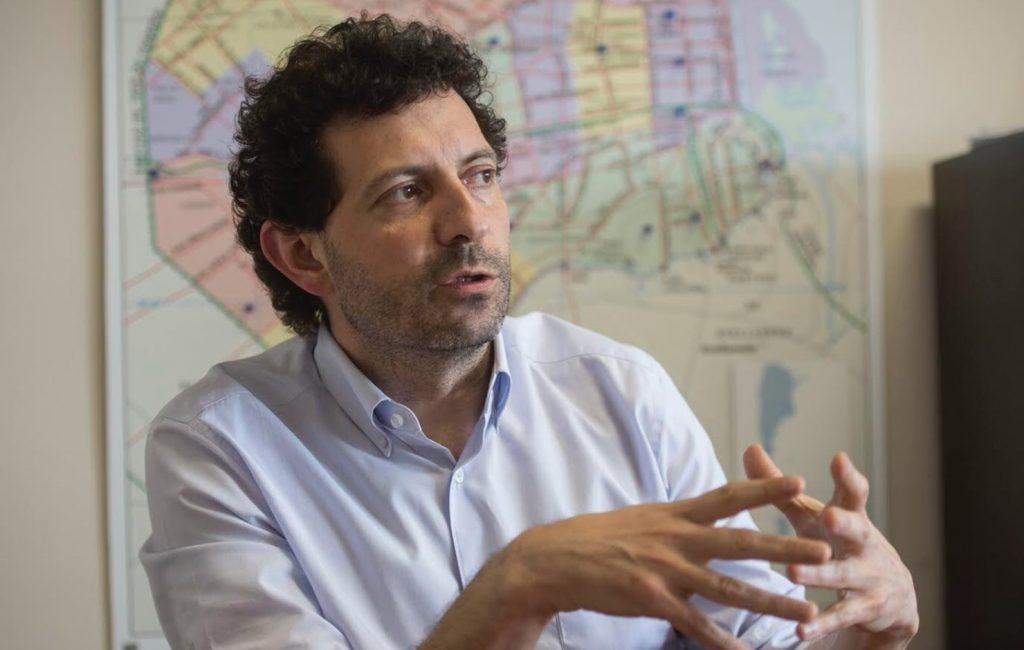
Gustavo Maurino, Former National Director For Access To Justice Ministry of Justice and Human Rights, Argentina:
“To create people-centered justice, you need a theory of action and every aspect of your policy should reflect on what happens to people, what kind of outcomes do you create in people’s live with the policies you are enacting.
We tend to focus on institutions and not on people. And that is really a wrong approach, because the challenges in terms of access to justice are so deep and so widespread.
That is why you need data and evidence. You have to create a body of evidence to properly understand the experience people have when they face legal problems. Unless you do that, you won’t be able to design adequate services.”
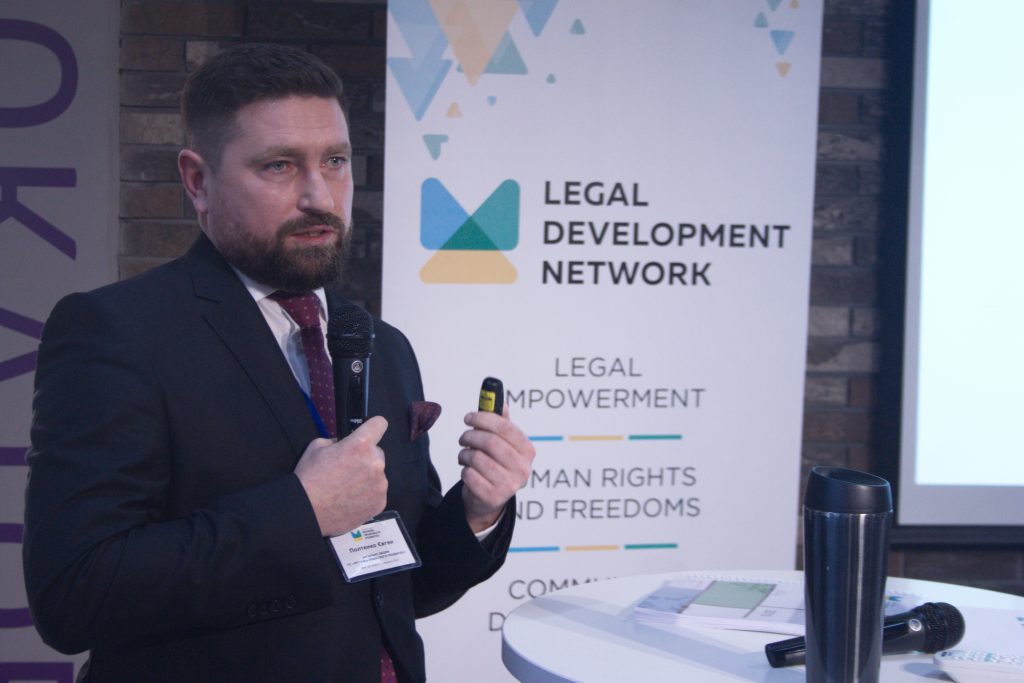
Yevgen Poltenko Executive Director of Legal Development Network, Ukraine:
“Since the spread of the pandemic in Ukraine, we saw an increase in demand in legal aid and a drastic reduction in public services and assistance. We had to radically change our way of working as a consequence of lockdown restrictions.
We created a live-chat function for legal consultations. This service provides an opportunity for people to communicate with a professional lawyer, with the help of technology. This is very important during the lockdown.
But during this crisis we also noticed that online tools could not reach everyone who needs help. Some people lack technical skills or don’t have the devices. So we created an offline information campaign and provided legal aid by phone and in our offices.
The pandemic demonstrated that the government could not fix all issues alone:
- Intersectoral partnerships are strongly needed.
- We enhanced advocacy efforts with the government, specifically with the Ministry of Justice, on non-governmental legal aid providers’ funding issues involving government, local authorities, and private sources.
- And we support this work with data. The LDN trains activists to conduct the legal needs surveys in their communities. This program allows both to identify the communities’ residents’ legal problems and find solutions in a participatory, co-creative manner. This program already covered 10 communities in 9 of 25 regions of Ukraine. And I am glad that several communities that are not a part of the program already used our method independently.”
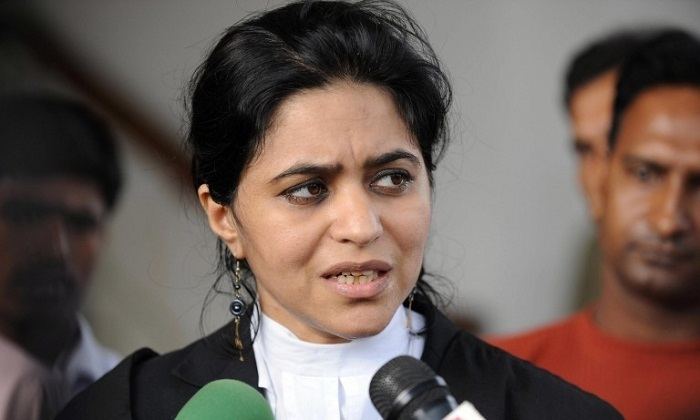
Sara Hossain, Honorary Executive Director, Bangladesh Legal Aid and Services Trust:
“When the pandemic hit, many of our clients’ first concern was with survival. The government announced a major stimulus package, which did include certain marginalized groups, for example people with disabilities.
But of course, there was a gap between the policy and practice so individuals were being left out in terms of the actual disbursement process. One of the things we were able to do is fill that gap and linking some of our client communities to the government relief packages.
There was increased reporting of violence, particularly from women. We did not have most of our normal tools because of closed courts and the police dealing with the lockdown. But we did have phone lines, so we gave advice by phone and linked people to government hotlines as well.
It has its limits because many people don’t have smartphones or connectivity. But we were able to have conversations in communities, do advocacy with the authorities, using zoom links to talk about where we were seeing problems and where issues needed to be addressed urgently. “
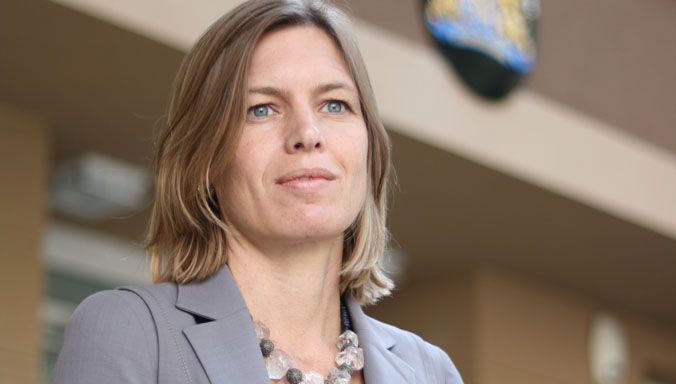
Marriet Schuurman, Director of Stability & Humanitarian Aid, Dutch Ministry of Foreign Affair:
“Since the adoption of the Hague Declaration last year the Netherlands MFA has made people-centered justice the focus of our access to justice strategy. Read the Hague Declaration here: https://bit.ly/3j8tFnh
It is critical to have data-driven policies and that we actually know what the justice needs are. We also need a whole-of-system approach. In the Netherlands only 4% of disputes go to court. So it’s not about the formal sector, it’s much more about the informal justice sector.
This means we have to move from an approach focused on capacity building of institutions to ensuring that the institutions are responsive. We don’t need to meet the demands and the needs of the institutions but the needs of the justice seekers and improve justice outcomes.
The COVID pandemic has led to an increase in innovation, but also this enhanced focus on local resilience and what people-centered justice really means and what it can mean to recover better together. It has enhanced the relevance and the urgency of people-centered justice. “
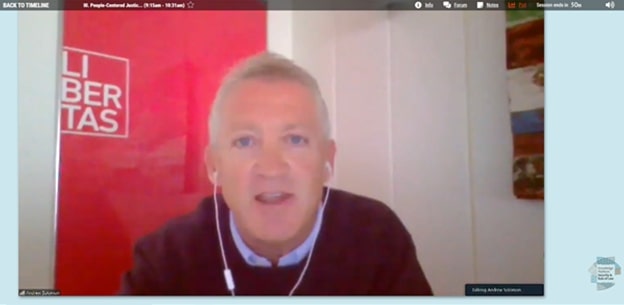
Andrew Solomon, Senior Rule Of Law Advisor at USAID:
“In the context of USAID’s work people-centered justice is proving very relevant. It’s rhetorically and conceptually quite powerful and we also find that it has practical value in shaping activities to achieve important justice outcomes that we pursue.
People-centered justice helps us because it places so much emphasis on data. It contributes to what I like to call the epidemiology of injustice. Just like we will beat COVID by testing and tracing, justice data will help us meet those legal needs, and ultimately prevent them.
We need to facilitate feedback loops between users and justice actors and create the data literacy and the processes for evidence-based decision making. Justice needs and satisfaction surveys are key and justice journey mapping is also important.
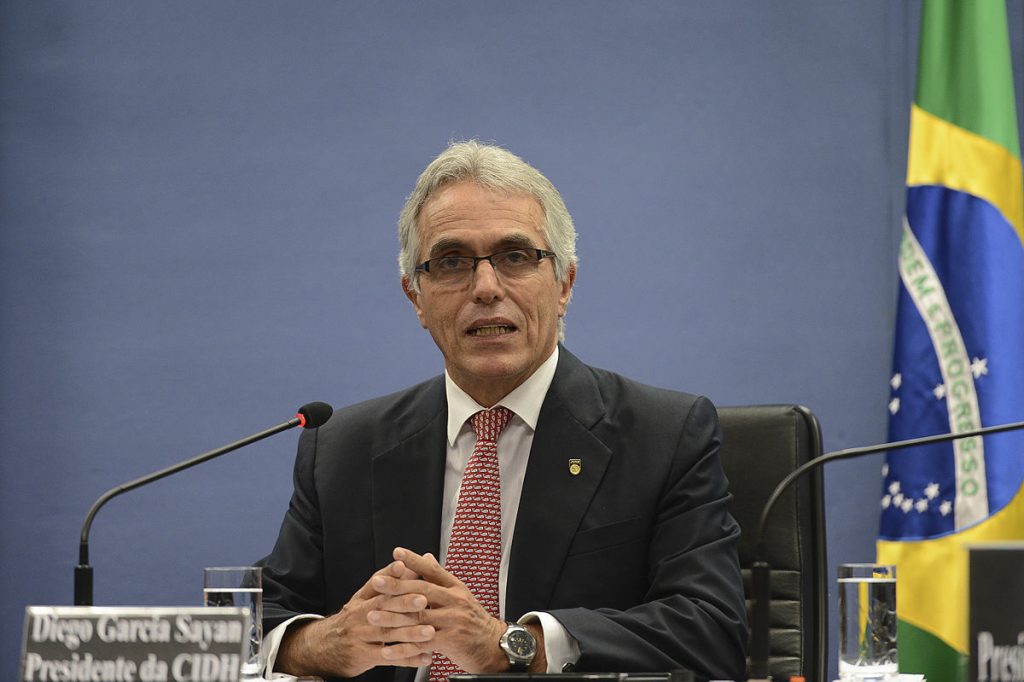
Diego García-Sayán, Director-General Andean Commission of Jurists, member of Permanent Court of Arbitration in The Hague & Inter-American Dialogue and Special Rapporteur on the independence of judges and lawyers:
“When the Pandemic began, I published urgent steps to ensure justice systems are not paralysed by COVID-19 – including seven key guidelines to maintain functioning judicial systems.
The first step on that list was to bring justice closer to the people by encouraging creative steps.
Read the guidelines here: https://bit.ly/2FDV1UH”
Sam Muller concluded:
“Let’s hope that at the end of this crisis justice systems will be transformed. Just like governments are telling businesses: we will support you, if you become more green. We should demand that justice systems come out of the pandemic more people-centered.
Read more on people-centered justice in our Briefings on Justice in a Pandemic: https://www.justice.sdg16.plus/justice-in-a-pandemic”
P. S. In June 2024, the Legal Development Network (LDN) launched a crowdfunding campaign, Recovery of The South of Ukraine , as part of the crisis response program #StandWithUkraine.
You can Recovery of The South of Ukraine |
If you have notices an error on the web-site, please, highlight the text and press ctrl-enter.
Have you found your solution? Help others!
Print a poster
Print and place the Network's poster on a notice board in your entrance hall
Become a volunteer
Become a volunteer and assist others in finding problem solutions
Do you need a consultation ?
Online chat
Поставте питання, i один з експертiв Мережi надасть вiдповiдь.
Графік роботи чату: з 10:00 до 16:00
щодня
(обідня перерва з 13:00 до 14:00).
Chatbot
Поставте питання через LawLink Bot в будь-який зручний спосіб. LawLink Bot — це розумний та цифровий юридичний помічник, якого створила Мережа правового розвитку.

